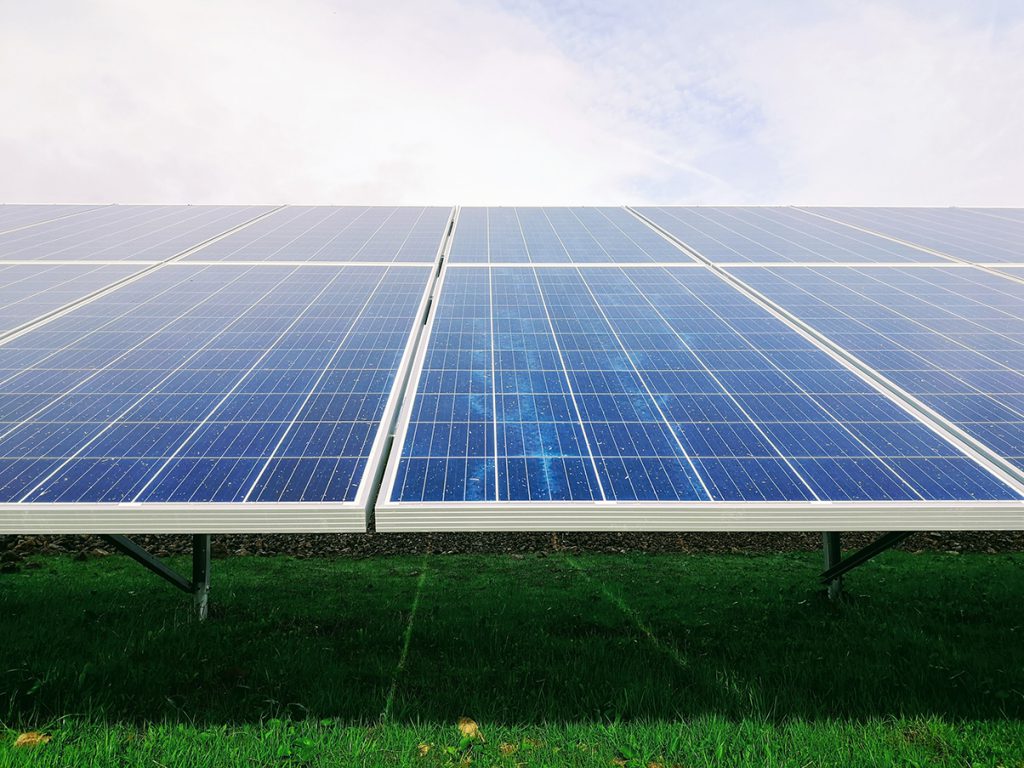Georgia’s climate change opportunity
Georgia has long aspired to be at the heart of Europe. As the new decade starts, the EU has decided to set ambitious goals on climate change. This gives Georgia a great opportunity to be a leader in the EU and align with Europe’s sustainability values.
By pledging to achieve carbon neutrality by 2040, or 10 years ahead of the rest of Europe, Georgia could assume a leadership role, demonstrate the business case for climate-reform, stimulate investment, growth and jobs, increase the country’s security and create a rallying-point for national renewal.
As this special environmental issue of Investor.ge shows, this would also line-up with a wide range of initiatives that are already happening. In this issue we highlight changes in the regulations of electricity production, new financing for sustainable projects, new regulations on recycling and initiaitves to support sustainable agriculture.

How would Georgia set out to achieve the goal of carbon neutrality?
For a start, the country should aim to produce enough electricity from renewable sources to cover 100% of its own consumption within the next five years. Georgia starts at a huge advantage in achieving this goal. As recently as 2010, the country produced more hydropower than its entire electricity consumption for the year. This has dropped to 75% due to incredibly high demand growth, but still starts in a strong position.
Georgia also consumes far more electricity than it should.
According to the World Bank, the country consumes about three times the electricity per capita of other countries of a similar income level. This reflects historical inefficiencies and recent growth has also been driven by bitcoin mining, which accounts for at least 10-15% of consumption.
This is an opportunity, because with this level of inefficiency and waste, quick gains could easily be made. While insulation and solar cells are rarely self-financing if done by individuals, the picture is different if it is done at scale, ideally by the state.
Solar City, a company started by Elon Musk, was able to massively expand home solar use in California by offering free solar cell installation, charging for the electricity produced but reducing electricity bills overall. The Georgian state could do something similar with solar cells and insulation cladding.
Renewable electricity production would also have to go up. Georgia’s hydro-production opportunities are well known, but there are also opportunities in solar and wind. These have not developed so far, because of the challenges of grid-management for renewables, and because the Georgian government has been concerned about the cost of providing the support needed to make these projects viable. Both problems would be alleviated by efforts to increase efficiency and to grow household-level electricity production, as they would require the development of smart-grid infrastructure. Also, greater efficiency would mean that electricity prices could actually go up a bit, without overall household costs increasing. This would make renewable production more attractive to investors.

Commitments to green-energy production could be a huge stimulus for FDI in other sectors. This will be particularly important for exports oriented to the EU. One of the key components of the EU’s new climate change agenda will be a new carbon tax on imports. With 100% renewable Georgian electricity, any investor planning to build a factory would be able to say their energy consumption was carbon neutral just by plugging into a Georgian power supply.
When combined with access to the EU afforded by the Deep and Comprehensive Free Trade Agreement, this could finally stimulate the significant export growth that almost all economists say is essential if Georgia is to develop quickly.
Independence in electricity generation would also be good for security. Georgia is no longer significantly dependent on Russia for gas or electricity, largely shifting to Azerbaijan for gas about a decade ago and for electricity in the last few years. However, it is probably still not ideal to be quite so energy-dependent on Azerbaijan.
Also, around one-third of Georgia’s electricity production comes from the Enguri dam, which is vulnerable as it straddles the boundary of Russian-occupied Abkhazia. Higher production and lower consumption would also make Georgia less vulnerable generally.
Steps towards achieving these goals are already being taken: in the end of 2019, the Georgian parliament passed groundbreaking legislation with the adoption of the Law on Energy and Water Supply and the Law on Renewable Energy Sources.
The next step in achieving carbon neutrality should be a push to increase the efficiency of transportation with the aim of full electrification. In cars, this is already happening. Tbilisi’s dramatic increase in the use of Priuses results from a 2017 change in the customs code that gave hybrid cars a 60% reduction in import taxes. That same year, imports of hybrid cars went from zero to $84 million, increasing again to $138 million, or a quarter or all car imports, in 2018 and 2019.
This is great for the Georgian environment, but also shows that in this price sensitive market, price signals work.
If taxes were increased on car imports, Georgia could shift to importing almost entirely hybrid/fully electric cars a decade from now, with the aim at fully electric cars a decade after that. This would, of course, push up electricity consumption and thus the need for more green-energy production, but would reduce carbon output and improve air quality across the country.
The other crucial element of low-carbon transport is to get vehicles off the roads by providing better public transportation and a strong push to get freight transport onto trains. This is clearly the future anyway. Georgia will never be a transit route for goods to/from China, if that transit occurs on trucks, since it is too slow and too expensive.
If Georgia could offer a low-carbon tourist experience, it could also stimulate interest from high-end tourists looking for a guilt-free holiday. For the most diligent environmentalist, a voluntary ‘green-tax’ paid at the point of entry could be used by the government to offset the carbon footprint of the flight by planting trees, or increasing conservation areas.
A sustainability agenda would create multiple paths for job creation and economic growth. Infrastructure improvements, increases in the insulation of houses, installation of solar panels and new equipment would all create direct short-term economic stimulus.
Increases in FDI towards export-oriented investment and increases in green tourism would have a more long-term positive impact.
Energy and sustainability would also align with broader environmental goals that would reinforce one another. Municipal waste management and recycling clearly remain big holes in the Georgian ecosystem, but if sustainability was part of Georgians vision. They could be pushed forward.
But, perhaps most interestingly, it would put Georgia at the forefront of a range of key new industries.

We could call these industries ‘Carbon Neutral – on the Cheap’. Georgia used to be a major import/export country for second-hand cars. These weren’t just transit goods, but included considerable value-addition, since Georgians would often import damaged cars, before repairing and exporting them. This took advantage of Georgia’s lower labor costs to fix vehicles that would be too maintenance-intensive for the West.
One could imagine similar opportunities in green technology, from renewal of battery systems for electric cars, to insulation, to solar maintenance. If Georgia could become expert in the development, repair and maintenance of second-hand or low-cost renewable and low-carbon technology, that could be a huge niche market.
The costs of this strategy would be considerable, but would mostly take the form of long-term investments and could be financed cheaply from international sources. The risk-sharing involved in encouraging large-scale electricity production would require subsidies or price-guarantees from the government. This can only be justified if the electricity produced is being used to support local industry that creates jobs in the country. It would also be crucial to make sure that low value-added activity like Bitcoin mining (if allowed at all) should not consume subsidized electricity and pay taxes.
Modifications to the national grid to make it smarter and more capable of dealing with fluctuating renewable supply, incentives to encourage insulation and energy efficiency, government-supported solar and a push to hybrid/electric car use would also have potentially high costs.
However, not only would all of these costs generate economic benefit, they should be easy to cheaply finance. The International Financial Institutions (IFIs) are all keen to be heavily involved in renewable energy investment. The European Investment Bank has recently announced a new climate strategy and Energy Lending Policy which plans to ‘unlock EUR 1 trillion of climate action and sustainable investment in the decade to 2030’. The EBRD, similarly, plans to have 40% of its portfolio in green investments, recently introducing its $54 million Green Economy Financing Facility in Georgia.
The World Bank and Asian Development Bank both have large green funds.
Provided through the government on a sovereign guarantee, funds for supporting climate change adaptation could be secured at very low interest rates with very long repayment periods. This would allow the government to experiment with different incentive schemes to encourage increasingly sustainable behavior, in large and small-scale energy production, in transport, in insulation and much more.
Georgian leadership in this area could also be important because while developed countries are often the focus of climate change discussion, developing countries are key to resolving the climate change emergency in the long-term. Around 5 billion people, or 70% of the world’s population live in middle-income countries, compared to only 16% in high-income countries. It is therefore critically important that middle-income countries develop strategies to cut emissions in ways that benefit their populations. By taking a leadership role and showing how positive these changes can be for economic development, Georgia could have a disproportionate global impact.
Perhaps most importantly, this would be a project around which Georgia could regain its exceptionalism and pride as a global leader. Georgia’s self-perception is not just as a place for hospitality and wine, but for unspoiled nature, natural produce and pristine water.
Building on this image to clean-up the country and to cement it in the international consciousness as a center for green rejuvenation would have a whole host of positive knock-on effects. It would create jobs and make people richer. But perhaps best of all, it would also make Georgia a nicer place to live.

